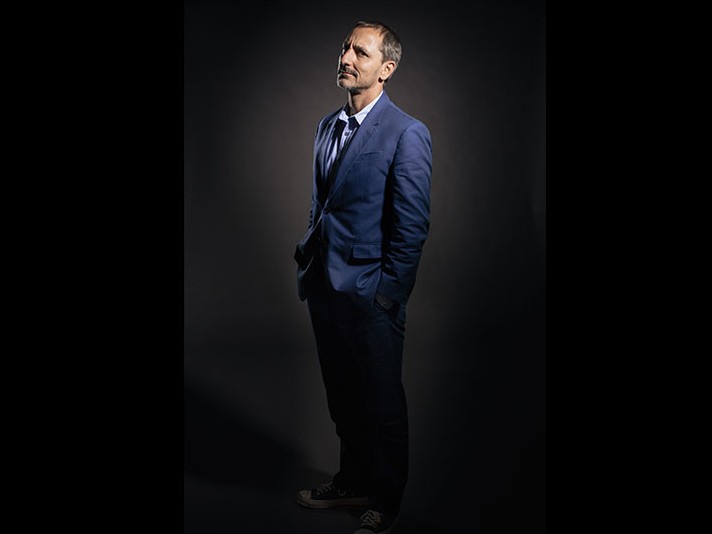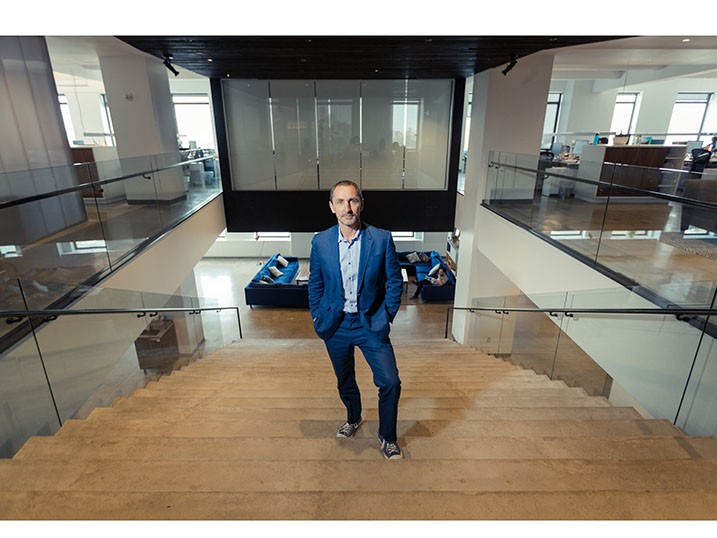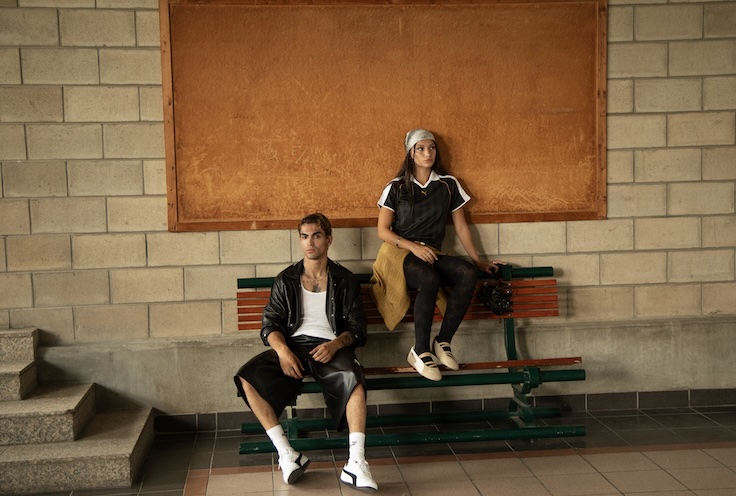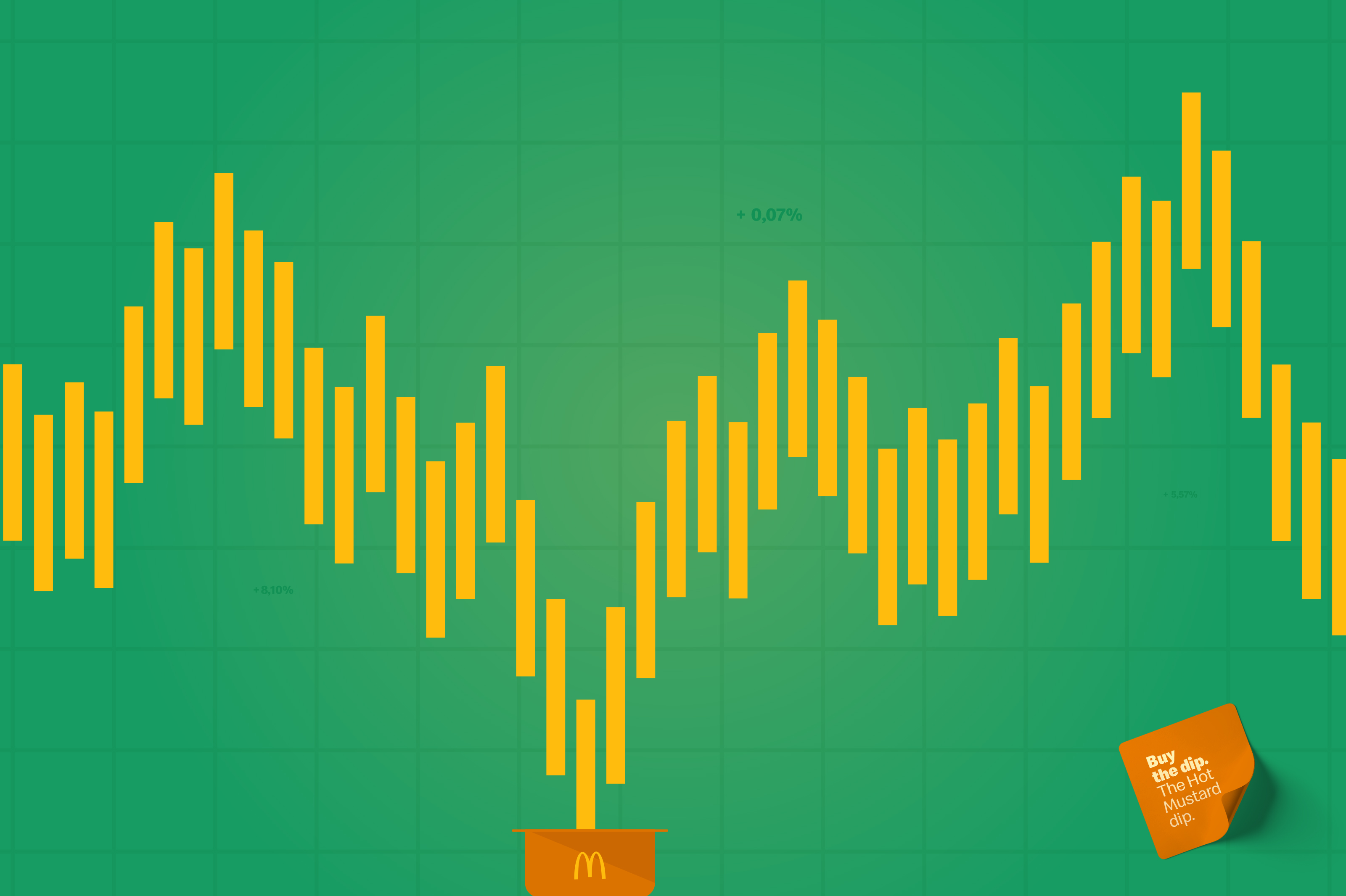News - Advertising
David Droga: 'I wasn’t interested in just getting a job'
by Nils Adriaans
January 27, 2020
.jpg) Advertisement
Advertisement
Q1: South African Molefi Thulo is creative director at Ogilvy Johannesburg and multiple Lions winner: ‘David, what do you consider to be the biggest gamble of your professional life? And what did you learn from it?’
A1 — David Droga: Gambles in professional life are nothing compared to gambles in personal life, right? I think leaving my own country to try myself in markets I didn’t know and had never been to was a risk but also the excitement of that at that young age eclipsed the risk because I could always go back to Australia. I think, on paper, people would argue against leaving a huge job where you fought hard to get to the top of the food chain and these big networks, and you get the title, salary, corner office and power and all the trappings that you think you want, but then you realize when you get it that’s not actually what you want. Particularly as a creative person, you want to just have an opportunity to work with like-minded people and make work that you’re proud of consistently. So on one level, it was a gamble to park all that, and I left behind not just the certainty of a big salary but also equity (I had shares in Publicis that I had to actually give up—I wasn’t going to roll on, which is how they keep people there) to start from scratch.
But again, same thing. The trade-off was a no-brainer for me. To have the opportunity to start with a blank canvas and without alibis. It was nerve-wracking and exhilarating.
Q2: French creative director Sandrine Le Goff is partner at creative agency Cloudfactory in Amsterdam (she worked for Heineken before) and was a jury member for Film Craft in Cannes this year: ‘David, how many times did you reinvent yourself since you were a child in Australia? And can you give each cycle a title or word?’
A2— David Droga: I don’t know if I ever reinvented myself growing up. I think I was always just a little kid with a raging imagination who just wanted to try and find somewhere to park it. I was really lucky I didn’t have to reinvent myself to fit into the industry. I was just very lucky that I found the slot where the balance between creativity and wanting to be self-sufficient—being able to build a career and fit into advertising. The only thing is I had to grow up quickly because, through good fortune and hard work, I found myself moving up the corporate ladder of responsibility really quickly. So I had to force myself to move from being a selfish creative to a selfless creative director. I don’t know if that has a title. One of my favorite expressions: sprint forward, fall forward, move forward. That’s always been my motto.
Q3: Merlee Jayme is ‘Chairmom’ and CEO at Dentsu Jayme Syfu on the Philippines: ‘How do you consistently balance the push for creative excellence, while mixing your culture with that of Accenture Interactive and dealing with clients who value channels, link tests and social assets more than the creative idea, and the push for healthy revenue given the shrinking industry climate? In other words, what is your personal take on the future of the creative industry?
(He used to be my boss when he was our Regional Creative Chief at Saatchi’s in the 90s. I totally adore Dave Droga ;))
A3— David Droga: I think the future of the creative industry is when it's done for sincere reasons and there’s real purpose to the creativity. And it’s not creativity for the sake of it. It’s always going to be relevant. Creativity in business is one of the few legal, unfair advantages, and it doesn’t cost more to have a great idea than a bad idea. It takes as much energy to justify a mediocre idea as it does to try and create a great one. And I think there’s always been pressures on creativity within our industry because there’s a responsibility. Clients are putting a lot of money, a lot of faith, a lot of time, a lot of expectations into what we put out into the world. And there’s never been a better time for better communications that have more cut-through and resonate more because there’s overcommunication in the world with technology. Our work has to be more unique and decisive. Things will be pressure-tested, but the ultimate test beyond link testing is just actually is it going to be memorable and is it going to cut through? Because so much stuff doesn't; it disappears and it’s disposable. I’m not one of those people who resists the idea that our pressures are scrutinized more. I like pressure. Hello Merlee.
Q4: Hugo Viega from AKQA São Paolo, winner of 2 Grand Prix with 2 different campaigns this year in Cannes: ‘What was the turning point in your early career? Not in terms of project, but the change of mindset that started the epic rise of David Droga. (Plus: What was a mom’s advice, as we call it, that you used in your professional life?)
A4— David Droga: My whole thing is it started from the get-go. Because I chose not to go to college and my four other brothers went to college, I knew from the get-go that if I actively made that choice, whatever I applied myself to, I might as well try to really apply myself to it. I wasn’t interested in just getting a job. I was interested in proving out my decision. And proving out my imagination. So right from the get-go, when I did a work course in Australia where I was working in the mailroom of an agency, I chose right there and then as an 18-year-old kid—I was going to work my ass off and give up my weekends and evenings to not enjoy the fruits of being an 18-year-old but to propel my career and work hard, and I was very lucky to be the top student of the year in Australia and was able to get a job as a writer. And I just took the same attitude—I wanted to move at the speed of my talent and work ethic, not at the speed of the expectations of the industry.
A4 cont. — David Droga: My mom’s advice? Nothing is easy and nothing just gets given to you. Her expression is: the only free cheese comes in a mouse trap.
Q5: Josh Bryer, now CD at AKQA Sydney, was one of the creatives behind Palau Pledge from Host/Havas last year: ‘For any given brief, how do you personally know with total certainty which one of your ideas is the best?’
A5— David Droga: There’s no such thing as total certainty. But there is a feeling and a confidence in something. Usually I break it down into trying to understand what the outcomes I want of the idea are and what I want people’s reactions to be. I try and bake people’s reactions to the idea into the idea. Why would anyone give a shit about this? What are we asking them to do, think, feel or behave. I’m quite a simple person, which is maybe an advantage, so I don’t get caught up in the bells or whistles of things. And I just look at an idea for what it could be or should be but not for the glory of it. I usually know when I hear an idea that I love—it’s not bells and whistles where I get excited. The best ideas I get exceptionally nervous about straightaway. I get frustrated that the idea isn’t out in the world now, and that puts a sense of urgency in it. If I’m paranoid that this ad or idea or narrative could be compromised, then I’m like, “This is a good one.”
Q6: Canadian creative John Larigakis was responsible for flipping McDonald’s arches on International Women’s Day in 2018: ‘The Unicef Tap Project and Puma After Hours Athletes are two of my all-time favorite ad campaigns. What’s great about them is they're simple and powerful, with a satisfying creative connection. I think a great idea is most pleasing and memorable to the viewer when it reveals a bit of the “aha moment” that went into creating it. It surprises and delights the viewer, leaving them to remember the brand in a positive light. Through your career, have you used a consistent process to reach these kinds of “aha moments”? What kinds of methods are your favorites to use?’
A6— David Droga: I go back to what the simple truth is. Is there something I can relate to beyond the wrapping of it? Some of the best ideas are so obvious, and when they’re grounded in something very obvious, that gives you the freedom to exceptionally create around it. It’s when they’re not grounded in something, the real truth, that they’re very flimsy and you can’t stray too far. Tap Project seemed like a no-brainer, and it also felt like it was something sustainable. And the insight with “After Hours Athletes,” you know the scripts, the events, the programs that went around that, but the real idea and truth of it: 80 percent of the people who are wearing this sort of stuff aren’t running marathons or on a football field. They’re in a bar playing table tennis, so we just tried to coin a phrase and create a sub-category called the After Hours Athlete, another expression for leisure wear. I always loved that expression. When you play ping-pong, I’m not going to give it 100 percent, but I’m going to give it 70 percent to try and beat you. Ideas that last beyond execution—if it lives or dies by the actual execution, then it’s a one-off. If it’s something you want to tackle from multiple ways, then I’m like, “Okay, there’s something genuine here.”



.jpg)



.jpg)




